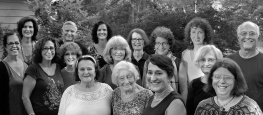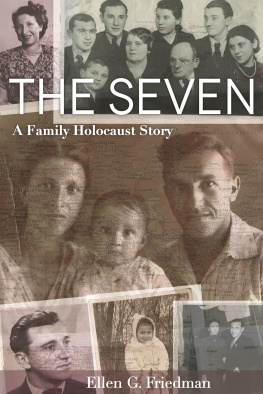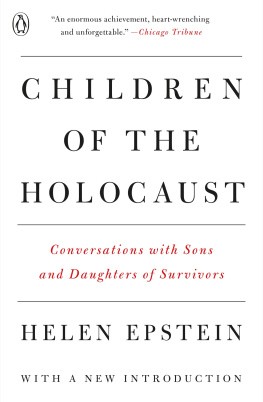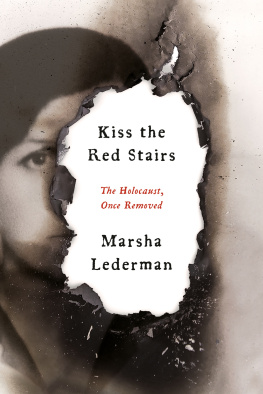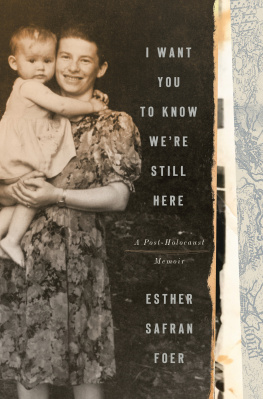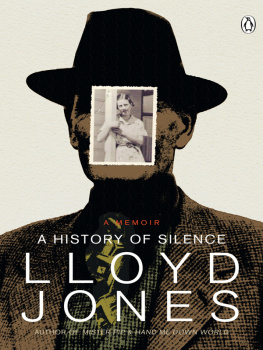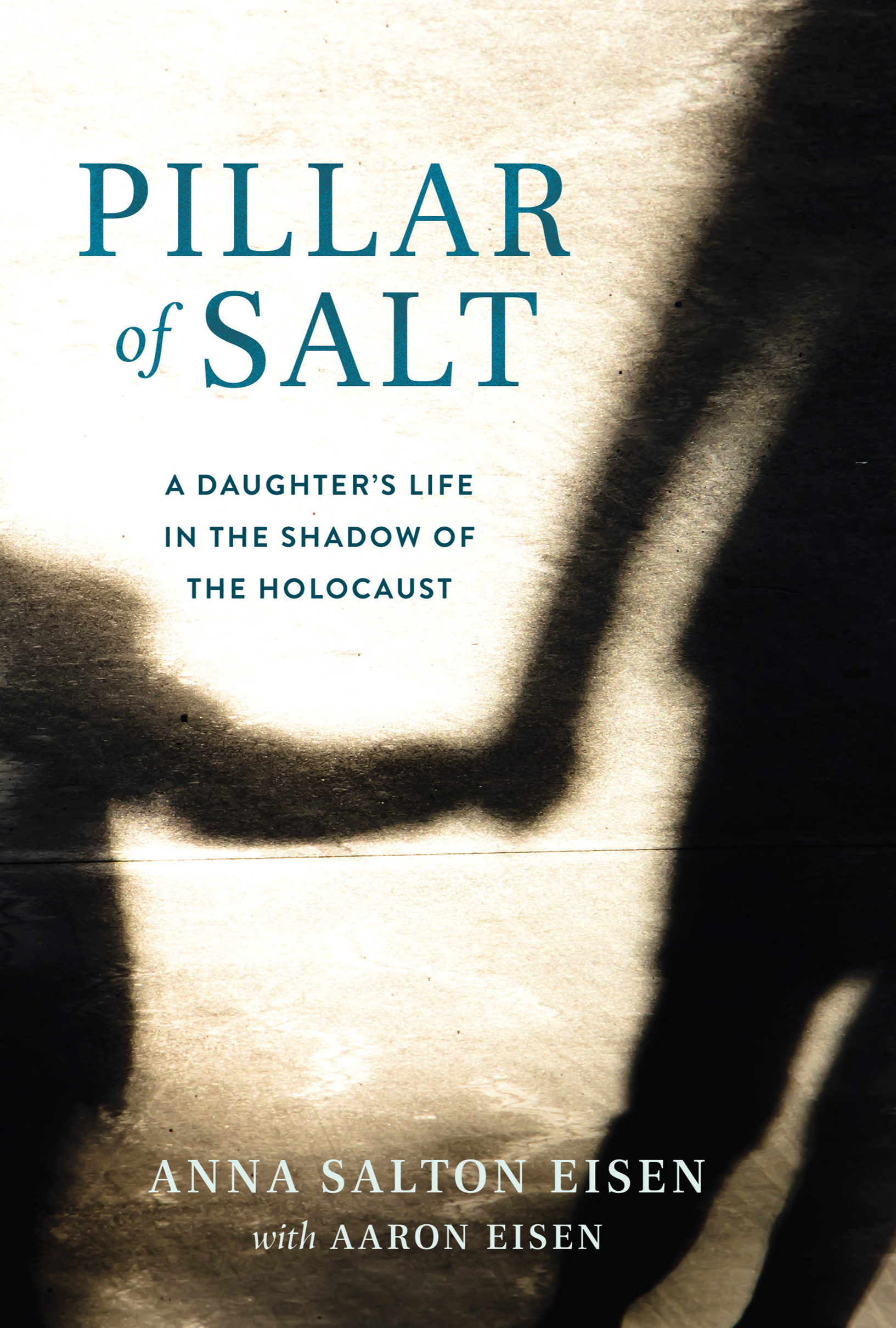Contents
Guide
Pagebreaks of the Print Version
PRAISE FOR PILLAR OF SALT
Anna Salton Eisen shows how the trauma of Holocaust survivors influenced their children even when the parents avoided the subject for many years. A vividly colored, elegant study of family dynamics as two generations eventually came to terms with a tragic Holocaust past.
RICHARD BREITMAN, distinguished professor emeritus, American University; author of The Berlin Mission: The American Who Resisted Nazi Germany from Within
Anna Salton Eisens important exploration of her Holocaust heritage is about building community, building connection, through history, through your family, through your story.
DEB LIU, CEO, Ancestry.com
It is said that Lots wife looked back upon the destruction of Sodom and Gomorrah out of love for her family left behind, only to be transformed into a pillar of salt. Hence the title of Anna Salton Eisens Pillar of Salt. This testimonial is written out of a profound love for her family lost in the Holocaust, as well as for her parents, who survived. Navigating her way through the ruins of memory, Anna bears eloquent witness to the scope of the Holocaust that continues to cast its shadow over generations. Lots wife, however, teaches us that no one can gaze upon such devastation and come out unscathed. Nevertheless, if Anna found the courage to pen these powerful words, we must find the courage to read them and be transformed into witnesses.
DAVID PATTERSON, Hillel A. Feinberg Distinguished Chair in Holocaust Studies, University of Texas at Dallas
A true and beautiful story of a daughters quest to understand her parents haunted past, and to discover, in looking back, the indissoluble nature of love and family. A powerful and poignant read.
JENNIFER ROSNER, author of The Yellow Bird Sings, a National Jewish Book Award Finalist
Anna Salton Eisen creates a new paradigm for children of survivors to understand the Holocaust, our parents, and our own struggles. Pillar of Salt illumines the darkness that has surrounded us from birth. In so many ways, her story is our story.
RABBI KEITH STERN, senior rabbi at Temple Beth Avodah and child of a Holocaust survivor
Anna Salton Eisens Pillar of Salt is a profoundly moving tale of generational trauma and healing between father and daughter. Through her travels with him to Poland and her relentless search through personal keepsakes and Nazi archives, she discovers her own history and in doing so grapples with questions in the hearts of all of us. Her writing is straightforward and present, effortlessly whisking the reader along for the journey into the beast of the past, to emerge into a new light.
JACOB WISE, filmmaker and documentarian
PILLAR of SALT
A DAUGHTERS LIFE IN THE SHADOW OF THE HOLOCAUST
ANNA SALTON EISEN with AARON EISEN

MANDEL VILAR PRESS
Copyright 2022 by Anna Salton Eisen
All rights reserved. No portion of this book may be reproduced in any form or by any means, including electronic storage and retrieval systems, except by explicit prior written permission of the publisher. Brief passages may be excerpted for review and critical purposes.
This book is typeset in Masqualero OT 12/17. The paper used in this book meets the minimum requirements of ANSI/NISO Z39.48-1992 (R1997). 
Designed by Sophie Appel
Cover photo Aleksandra / Adobe Stock
The poem Creation is reprinted with permission from Jewish Action, the magazine of the Orthodox Union, vol. 60, no. 2 (winter 1999): 80.
The inscription on a monument in the memorial room of the Dallas Holocaust and
Human Rights Museum is reprinted with permission from the museum.
Publishers Cataloging-in-Publication Data:
Name: Eisen, Anna Salton, Author, with Eisen, Aaron
Title: Pillar of Salt: A Daughters life in the Shadow of the Holocaust
Description: Simsbury, Connecticut, Mandel Vilar Press [2022]
Identifiers: ISBN 978-1942134-824 (pbk.)
E-ISBN 978-1942134-831 (ebook)
Subjects: Eisen, Anna SaltonEisen, AaronFamily
Children of Holocaust SurvivorsSecond GenerationUnited StatesBiography
TravelJewsPolandTycyznHistory20th Century
Holocaust, Jewish (19391945)InfluencePersonal Narrative
Classification LCCDS134.62 E37 2022
Printed in the United States of America
22 23 24 25 26 27 28 / 9 8 7 6 5 4 3 2 1
Mandel Vilar Press
19 Oxford Court, Simsbury, Connecticut 06070
www.americasforconservation.org | www.mvpublishers.org
I dedicate this book to my parents, George and Ruth Salton, whose lives taught me the importance of memory, and to my children, Aaron and Erica, who inspired me to share this story.
Flee for your life! Do not look behind you nor stop anywhere in all the plain; flee to the mountain lest you be swept away.
[Lots] wife peered behind him and she became a pillar of salt.
Genesis 19:17, 26
CONTENTS
PROLOGUE
My journey began not with a prophetic vision or a compelling call from beyond or within. No enchanted path beckoned with the promise of personal or spiritual transformation.
Instead, it began with a brief and ugly argument that I had with my father.
At the time I was an adult, already well into my twenties, and for the first time in my life I shouted at my father. We stood in the foyer of my childhood home and flung words like knives at each other. In those few moments, a lifetime of buried truths burst forth. And so began my journey, a backwards tumble into the black hole that had swallowed my fathers past and left his heart broken: the Holocaust.
I was visiting Washington, DC, from my home in Texas to attend a small conference for children of Holocaust survivors. I had worked with two other children of survivors from Los Angeles and New York to organize a weekend meeting with others like us from around the country. We hoped that if we spent a few days together in a hotel conference room we might help each other understand how our parents pasts had shaped our lives. Many of us wanted to discuss how we could use the legacy of the Holocaust as a positive influence in our lives. Some were looking to blame their parents for their own dysfunction. All of us expected to experience that special connection that exists among the children of survivors.
It was the 1990s, and as our parents reached their golden years they were drawn into a new era of Holocaust acceptance. Holocaust museums were rising up in major cities across the country. There was a flurry of academic books and personal memoirs, survivor interview projects, and films involving the Holocaust. After years of silence, it was now acceptable and even in vogue to study and speak about the Nazis terrible crimes and to memorialize their innocent victims. And as Holocaust remembrance became an honorable obligation, the responsibility to bear witness was being passed down from our aging parents to us.
We grew up with parents whose stories and struggles as survivors of the Holocaust were unique, but we shared a common bond. Our parents had all endured similar horrors, no matter which of the twenty-one Nazi-occupied countries they were from. Their stories typically began with the German occupation of their hometowns, after which they were led into crowded and squalid ghettos and then to their doom in the concentration camps. Some fled into the forests; others were lucky enough to be hidden by righteous Gentiles. When the day of liberation finally arrived, our parents faced broken lives and uncertain futures.


